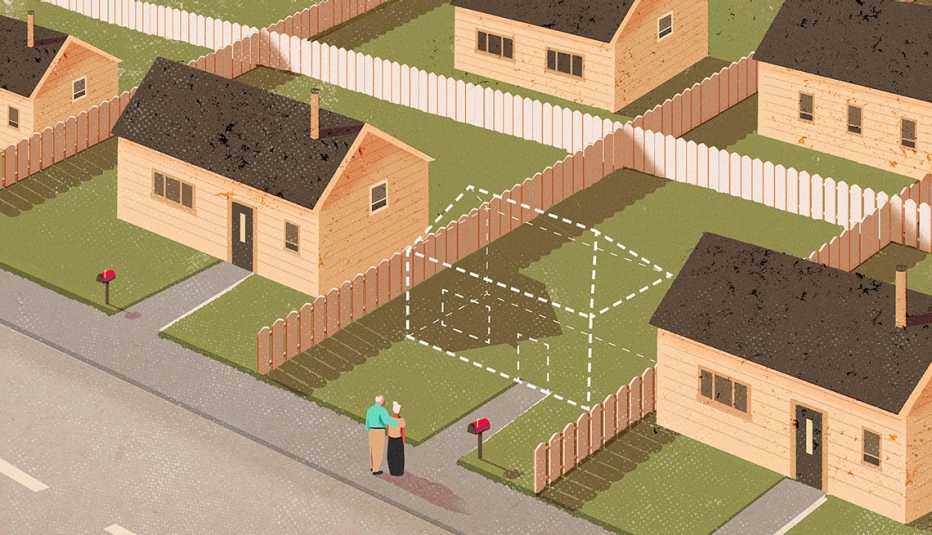AARP Hearing Center


Stealing a wallet, a cellphone, a car — these are threats we all understand. A thief grabs and flees. But in a rising form of fraud known as deed theft, criminals have found a way to steal no less than your home and land.
Though it is still a relatively uncommon scam, deed-theft cases are popping up across the country. There are two typical variations:
- In the first type, thieves forge a deed that transfers ownership of a property to them. They file the deed with a county clerk, who records the sale. Then the property is quickly sold to an unsuspecting purchaser.
- In the second type, crooks deceive a homeowner, convincing them to sign a deed to transfer ownership, often by promising help refinancing a mortgage or paying overdue property taxes.
Shirley Gibson, 88, is among those who have been targeted. She owns an empty plot of land in a historically African American section of Miami. In 2021, Gibson went to pay her taxes and learned they had already been paid — by a stranger. Property records showed she had sold the land for $230,000. Scammers had forged her signature, created a fake deed and taken her land. Gibson immediately hired an attorney and filed a complaint with law enforcement.
“I guess they thought because I’m old and an African American they would be able to pull that off,” Gibson says. They were wrong. Two men and a woman were arrested and face criminal charges related to the scam. Still, Gibson had to go through a complicated civil court process to get her property back. And anxiety lingers. “You have to be very vigilant,” she says. “They might try it again.”
Other recent deed-fraud cases include:
- In Washington, D.C., Robert McCloud used fake driver’s licenses to pose as two older homeowners who had paid off mortgages. In both cases, McCloud assumed the owners’ identities and transferred the deeds of their homes so he could sell them. His scam netted more than $580,000 before he was caught and sent to prison for 18 months.
- In another Miami case, prosecutors say Tom Roy Jenkins used a fake driver’s license and drew up fake documents to pose as the son of a woman in a nursing home, illegally transferring her house to him, then trying to sell it. Jenkins has pleaded not guilty to felony charges.
- In New York City alone, there have been more than 3,400 recorded complaints of deed theft since 2014, according to the state’s attorney general.
"Older people are often at risk to be targeted,” says Jay Inwald, director of economic justice litigation at Legal Services NYC, which helps deed-scam victims. That’s because they more often own their homes outright.


































































More From AARP
3 Ways to Help a Loved One Affected by a Scam
Ease their burden by offering compassion and assisting with financial and emotional recovery
Some Home Buyers Are Losing Everything to Wire Fraud
Learn how to protect your money from cybercriminalsRenter, Beware: When Looking for a Place to Live, Watch out for Scammers
Criminals out to steal your money and identity prowl online rental sites, hijack listings